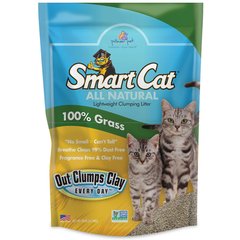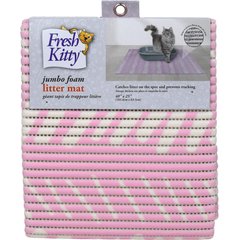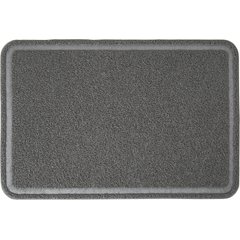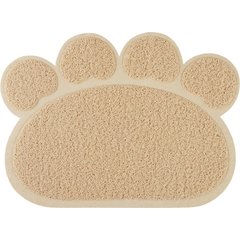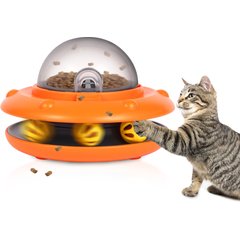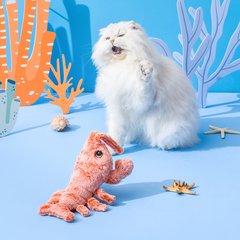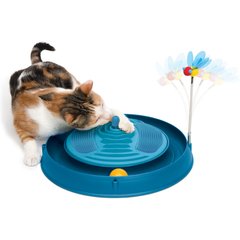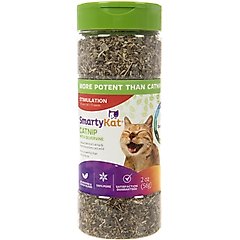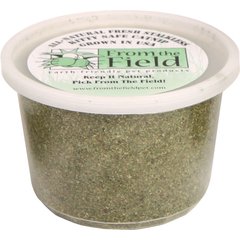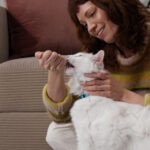The Pros and Cons of Grass Seed Cat Litter
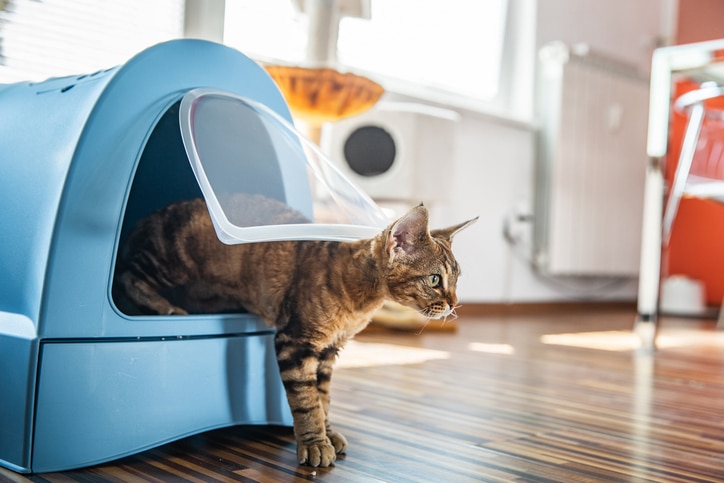
Photo by CasarsaGuru/iStock/Getty Images Plus
Key Takeaways
- Grass seed litter is a natural, eco-friendly alternative to clay litter—lightweight, nearly dust-free, non-toxic, and biodegradable.
- It offers strong clumping and odor control for single-cat homes, but may be less effective for multi-cat households.
- Its soft texture can be especially beneficial for kittens, seniors, and cats recovering from surgery.
- Potential drawbacks include higher cost, tracking, and possible allergies.
- Some cats may also resist the change in texture, so a gradual transition is key.
What Is Grass Seed Cat Litter?
If you’re searching for the best cat litter, you may have come across a relative newcomer: grass seed cat litter.
It’s a convenient, natural alternative to regular clay litter and it’s made entirely from—you guessed it—grass seeds. While this litter can be used just like traditional types of cat litter, it has unique qualities that are worth considering.
Is Grass Seed Litter Good for Cats?
Grass seed litter is a natural cat litter that offers several benefits for both cats and pet parents.
It’s Effective and Lightweight
Grass seed litter has good clumping and odor control and is lighter compared to clay litter, says Sabrina Kong, DVM, a veterinary consultant at We Love Doodles. These are all important qualities for a clean and easy-to-maintain litter box.
It’s Almost 100% Dust-Free
Unlike traditional litters, grass seed litter is nearly dust-free, reducing respiratory irritants for cats and pet parents, Dr. Kong says. This makes it a good choice for both felines and humans with respiratory conditions, like asthma or allergies.
It’s Non-Toxic
Grass seed litter is free of chemicals, dyes, and scents that could pose health risks to cats. Plus it has a natural, light grassy scent that appeals to picky cats.
If your curious kitty happens to nibble and ingest grass litter, it may cause mild stomach upset but is safe and non-toxic overall, Dr. Kong says.
It’s Environmentally Friendly
Since grass seed litter is made entirely out of grass, it’s biodegradable and more environmentally friendly. It naturally breaks down over time, unlike traditional litter varieties made with bentonite clay or silica.
If you’re looking to reduce your environmental impact, SmartCat grass cat litter is a popular and eco-friendly option.
Recommended Product
It’s Soft and Comfortable on Paws
Grass seed litter has a softer, sand-like texture that’s gentle on sensitive cat paws.
“[Grass seed litter] is especially suitable for kittens, senior cats, and those recovering from surgery or injury,” says Phil Good, DVM, owner and medical director of Beyond Pets Animal Hospital in Marietta, Georgia. “Its texture closely mimics natural soil and lets many cats instinctively gravitate toward it.”
It’s Easy to Scoop
Clumping litters allow for a quick, easy cleanup, which is part of what makes traditional litters so popular. When it comes to grass seed litter’s clumping ability, it rivals clay and makes scooping a breeze, Dr. Kong says.
This can help reduce time and effort spent on cleaning, while also promoting better hygiene for both the pet and the household, Dr. Good adds.
Are There Any Cons to Grass Seed Cat Litter?
As with any other litter, there are a few potential drawbacks when investing in grass seed cat litter to keep in mind.
It’s More Expensive
Grass seed litter has a higher price tag. The price is based on various factors, such as the cost of materials, manufacturing processes, features, and availability.
It Can Be Messy
Grass seed litter has lighter granules compared to other types of litter. As a result, it often sticks to your cat’s paws and ends up outside the litter box, Dr. Good notes.
To reduce tracking with grass seed litter, he recommends placing a litter mat near the box to catch any extra bits.
Recommended Products
It May Not Be Ideal for Multi-Cat Households
Grass seed litter could be effective for odor control if you have one cat. However, if you have two or more, it might not fight odors as strongly as clay litter does, according to Dr. Good.
Some Cats May Not Like It
Cats love predictability and thrive when they know what to expect. If you’re switching to grass seed cat litter, some cats might reject the texture if introduced abruptly, Dr. Kong says.
Help your cat adjust by slowly introducing the new litter. That way, you can reduce their stress and the possibility of litter box problems.
It May Cause Stomach Problems If Eaten
“While eating small amounts [of grass seed litter] is harmless, over-ingestion might cause vomiting,” Dr. Kong says, though she notes that this is rare.
Keep an eye on your feline’s potty habits to make sure they’re not snacking when using the loo.
You can redirect their attention from their litter to a more appropriate cat treat, like catnip or an interactive cat toy.
Recommended Products
It Can Attract Bugs or Grow Mold If Stored Improperly
According to our experts, one downside of this plant-based cat litter is that improper storage, such as leaving it in a damp or open space, could attract bugs or lead to mold in humid climates.
Maintaining a dry, clean environment with adequate ventilation can help keep the litter fresh.
Some Cats and Pet Parents May Be Allergic
Pets and people can be allergic to grass, which may result in a sensitivity to grass seed litter.
For cats with grass allergies, Dr. Kong recommends patch-testing first by mixing a small amount of grass seed cat litter into their current litter.
Watch for signs of an allergic reaction, such as:
- Itchiness
- Small, crusty skin lesions
- Skin inflammation
In rare cases, a cat might start sneezing or scratching, Dr. Good says. If you suspect that your cat is allergic, stop using the product and consult your vet.
How to Transition Your Cat to Grass Seed Litter
When making the switch to grass seed litter, make sure to:
- Mix 25% grass seed litter into their current litter.
- Increase weekly until fully transitioned.
- Keep the litter box ultra-clean during the switch and place a mat underneath to catch stray litter.
- If your cat is resistant, sprinkle catnip on the litter surface to pique their curiosity.
Recommended Products
Like other types of litter, scoop poop daily and change the litter every 3–4 weeks or sooner if necessary.
FAQs About Grass Seed Cat Litter
How can I stop my cat from eating grass seed litter?
It’s not unusual for cats to eat litter. If your cat keeps eating grass seed litter, scoop the litter box daily, feed them a balanced and complete diet, offer toys and other opportunities for enrichment, and minimize stress. If it’s still happening, consult a vet to rule out other health issues.
How do you dispose of grass seed cat litter?
Place the litter and waste in a garbage bag and throw it in your trash can. Don’t flush it down the toilet or dispose of it outside.
Does grass seed cat litter have dust?
Technically, yes. However, it has very minimal dust. One of the main benefits of grass seed litter is that it’s nearly 100% dust-free.
Is grass seed litter safe for kittens?
Yes, grass seed litter is safe for kittens. Dr. Kong recommends monitoring your kitten’s initial use of grass seed litter in case they’re curious and try to nibble it.
